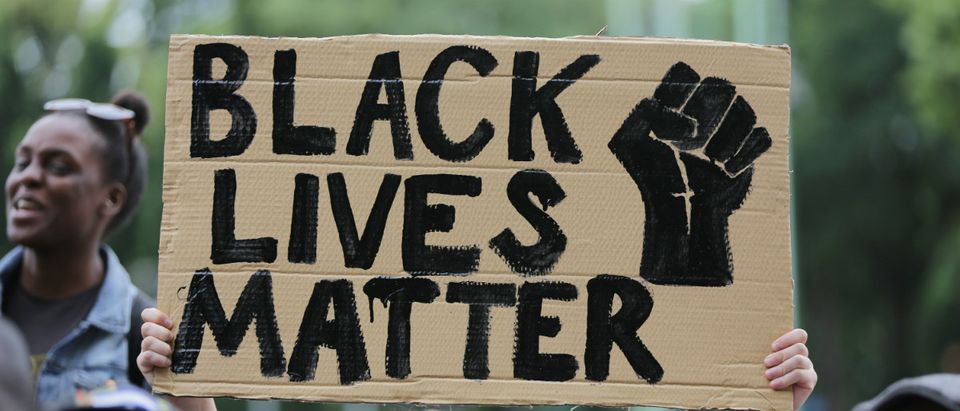A popular explanation for the shocking Trump phenomenon points to the rise of “white identity politics” among the many disaffected Americans who supported him, even against their economic interests. And, indeed, Republicans who saw race as marginal to their identity overwhelmingly didn’t vote for Trump, whereas those who saw it as essential overwhelmingly did.
To most Americans, “white identity” sounds distasteful, even racist – especially when associated with demands for a White History Month and White Studies Departments. The concept seems to mock the experiences and social concerns of American minorities, belittling them in a way that’s not much different from “White Lives Matter” T-shirts.
The recent sharp rise in white identification (in the five years before Trump’s candidacy, the percentage of Republicans concerned about anti-white discrimination rose from 38 percent to 47 percent) has puzzled observers left and right, though many have explained it as a backlash against the increased assertiveness of the Black Lives Matter movement.
But what if it’s not a backlash? What if, for many people, white identity is the result not of rejecting the worldview of Black Lives Matter, but of embracing it – and extending it to its logical conclusion?
“White privilege” is perhaps the central construct of today’s African-American intellectuals, organizers, and protesters. It’s a way of putting the white experience under a microscope.
- One of the most prominent white privilege educators,Gary R. Howard, who is white, has described the conceptthis way: “Whites need to acknowledge and work through the negative historical implications of ‘Whiteness’ and create for ourselves a transformed identity as White people committed to equity and social change.” Note that he capitalizes the word white, and explicitly calls for people to have an identity as “White people,” albeit with liberal politics.
- In theWashington Post, columnist Christine Emba, who is African-American, wrote that white privilege “is just a reminder to be aware — aware that you might not be able to fully understand someone else’s experiences, or that the assumptions you were brought up with may be blinding you to certain concerns. That awareness that is key to any sort of civil discussion, about race, class or anything else.” In other words, keep identities like your whiteness in mind when you talk about literally “anything.”
- In an essay published atwhiteprivilege.org,Grace Goodwin wrote, “The next time you sit at ease in an all-white classroom, or make advances in your career because of your hard work, remember the many who are not offered the same privileges…. If we are all willing to look our own privilege dead in the face, we can begin to break deeply harmful social constructs to create the America we truly believe in.”
Now, some people claim that white privilege means nothing more than the fact black people suffer serious social and economic obstacles due to their race – which they do. But that’s not what most advocates of the concept are talking about. They are demanding constant attention by white Americans to ways their life experiences are fundamentally different from those of black and other non-white Americans. On college campuses, there’s even a slogan for it: “Check your privilege.”
The white privilege worldview has begun to permeate our culture. Hillary Clinton referred to it repeatedly during the 2016 campaign, including telling the NAACP, “We white Americans need… to recognize our privilege and practice humility.” A well-regarded Hollywood film, Hidden Figures, was filled with references to the concept. And universities consider white privilege’s pernicious impact to be axiomatic.
With such intense focus on white people’s whiteness, how can the number of Americans exploring white identities NOT go up? And once Americans begin to see their white race as determinative of their life trajectories, some of them will automatically feel a sense of siege, particularly given practices like racial preferences and diversity training.
As a historian of both the gay and Jewish past, I can attest that majority identities are not inevitable, and develop only when minority identities assert themselves. Nobody had a “heterosexual” identity before the mid-19th century, when gays and lesbians began to define themselves as a separate group with specific life experiences. Orthodox Judaism wasn’t a “thing” in 18th century Germany; Jews were either fully observant members of the Jewish community, or they became Christian. But with the rise of Reform Judaism in the early 19th century, more traditional-minded German Jews needed a way to differentiate themselves from the Reformers – and Orthodox Judaism was born.
America has never had a “golden era” of race relations, but in the decades after the civil rights era, the consensus about racial equality was such that a United States president praising “some very fine people” among both white supremacist marchers and their opponents would be unthinkable.
Over the last few weeks, for African-Americans and others on the social-justice left, hearing Americans proudly proclaim, “My whiteness is central to my identity” has been alarming and even terrifying. So maybe they shouldn’t have spent the last several years asking Americans to believe that their whiteness is central to their identity.
David Benkof is a columnist for The Daily Caller. Follow him on Twitter (@DavidBenkof) or Facebook, or E-mail him at DavidBenkof@gmail.com.


